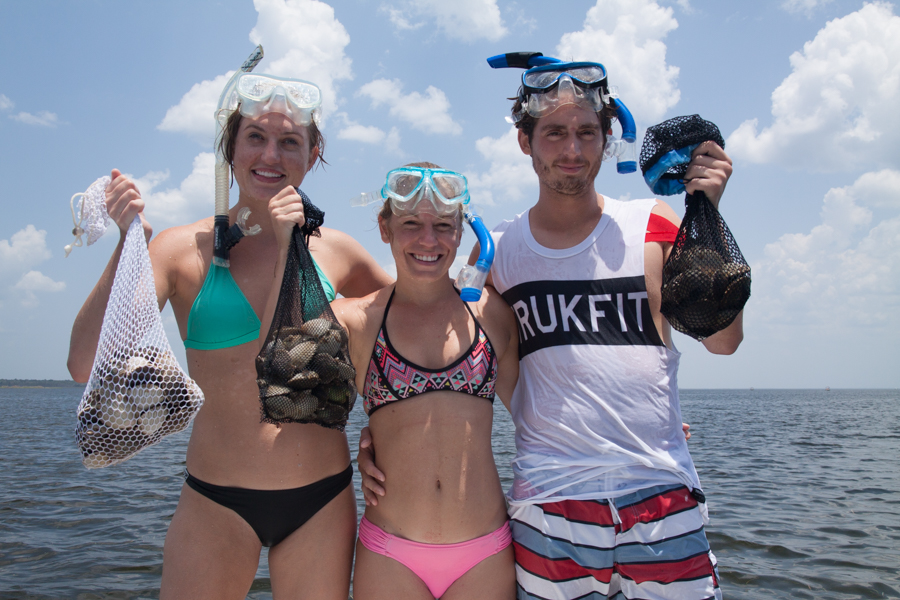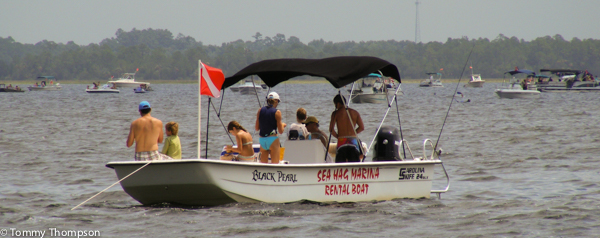New “User-Friendly” Dates Announced For Big Bend 2017 Recreational Bay Scallop Season
In recent years, Florida’s Recreational Bay Scallop harvest rules were fairly simple. You could “catch” your limit of these tasty morsels from the Pasco/Hernando County line to the Mexico Beach Canal from July 1 until September 24th. Some places were better than others with regards to the size and number of scallops available. But now, with more advanced knowledge and science available to fisheries managers, the Florida Fish and Wildlife Conservation Commission (FWC) has made some well-needed changes for 2017.
Here’s the text of the 2/9/17 release, with the changes:
“The 2017 bay scallop season for Dixie County and parts of Taylor County will be open from June 16 through Sept. 10. This includes all state waters from the Suwannee River through the Fenholloway River. These changes are for 2017 only and are an opportunity to explore regionally-specific bay scallop seasons.
These changes were discussed at the Florida Fish and Wildlife Conservation Commission (FWC) meeting on Feb. 8, where staff was directed to work with local community leaders on selecting potential 2017 season dates and to adopt changes by executive order.
At the Feb. 8 meeting, staff also updated the Commission on the status of bay scallops in St. Joseph Bay in Gulf County, and set a July 25 through Sept. 10 recreational bay scallop season off Gulf County, including all waters in St. Joseph Bay and those west of St. Vincent Island in Franklin County, through the Mexico Beach Canal in Bay County.
A prolonged red tide event in late 2015 negatively impacted the scallop population in St. Joseph Bay, which led to modified local scallop regulations for 2016 that included a shortened season and reduced bag limits. FWC researchers conducted a scallop restoration project last year within St. Joseph Bay to help speed the recovery of the scallop population. These efforts have been going well and the scallop population has shown signs of improvement. Staff will conduct similar restoration efforts in 2017.
All other portions of the bay scallop harvest zone will be open from July 1 through Sept. 24. This includes all state waters from the Pasco-Hernando county line to the Suwannee River Alligator Pass Daybeacon 4 in Levy County and from north and west of Rock Island near the mouth of the Fenholloway River in Taylor County through the westernmost point of St. Vincent Island in Franklin County.
Bag and vessel limits throughout the entire bay scallop harvest zone will be 2 gallons whole bay scallops in shell or 1 pint of bay scallop meat per person, with a maximum of 10 gallons of whole bay scallops in shell or 1/2 gallon bay scallop meat per vessel.
Those of us on Florida’s Big Bend (and visitors, too!) are affected mostly by the date changes for Dixie and about half of Taylor counties. With the new dates (6/16 through 9/10) it’s thought that the harvest would be more stable–and that local economies (marinas, hotels, restaurants, fishing guides) would benefit. Harvest dates for northern Taylor, Wakulla, Franklin and Levy counties (in Natural North Florida’s region) would remain unchanged (6/1-9/24). Vessel regulations, harvest rules and bag limits will remain the same.
Bay scalloping is more fun than should be allowed, and our Big Bend is the epicenter of the harvest in the United States. Ports at Steinhatchee, Horseshoe Beach, Keaton Beach and St. Marks all cater to a huge influx of visiting snorkelers during the open season.
Our local marinas and tackle shops are all friendly and offer accurate information on the scallop harvest. Many even offer boat rentals as well a scalloping supplies like masks, fins, snorkels, mesh bags, and most important–a Florida Recreational Fishing License. Click HERE for a link to a list of Natural North Florida marinas and tackle shops.
Finally, the main reasons for scalloping is to have fun–and to eat well. For a detailed review of the “art” of catching, cleaning and cooking of bay scallops, click on an article posted on Capt. Tommy Thompson’s Saltwater Anglers Guide blog site at:




